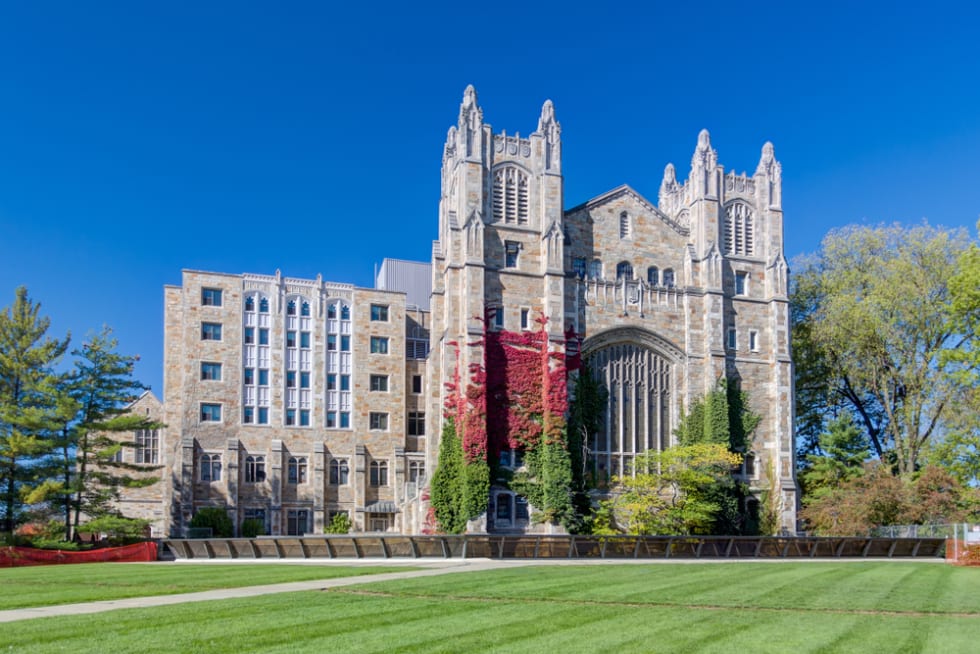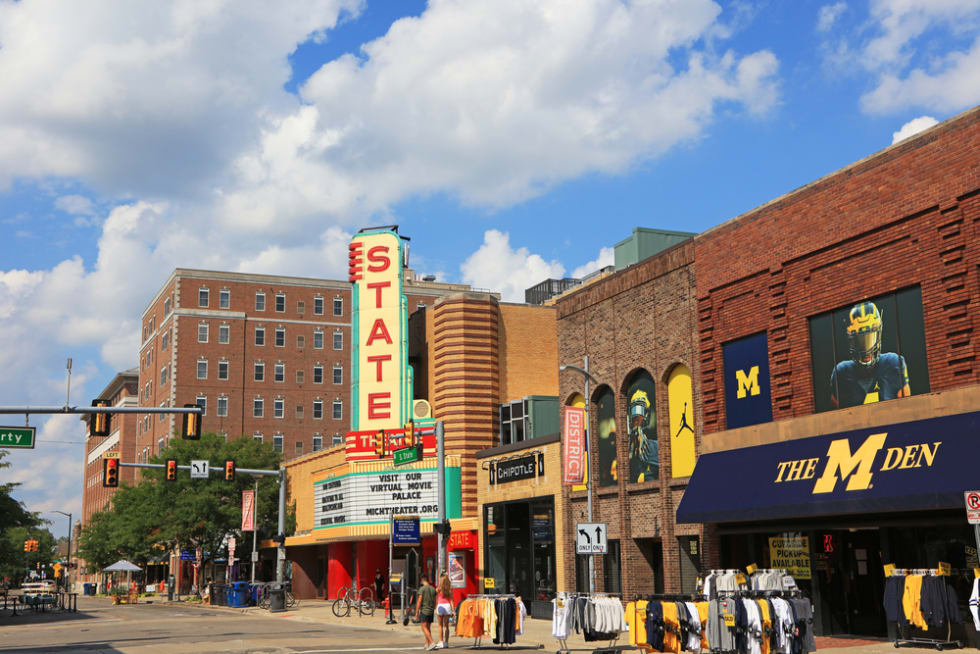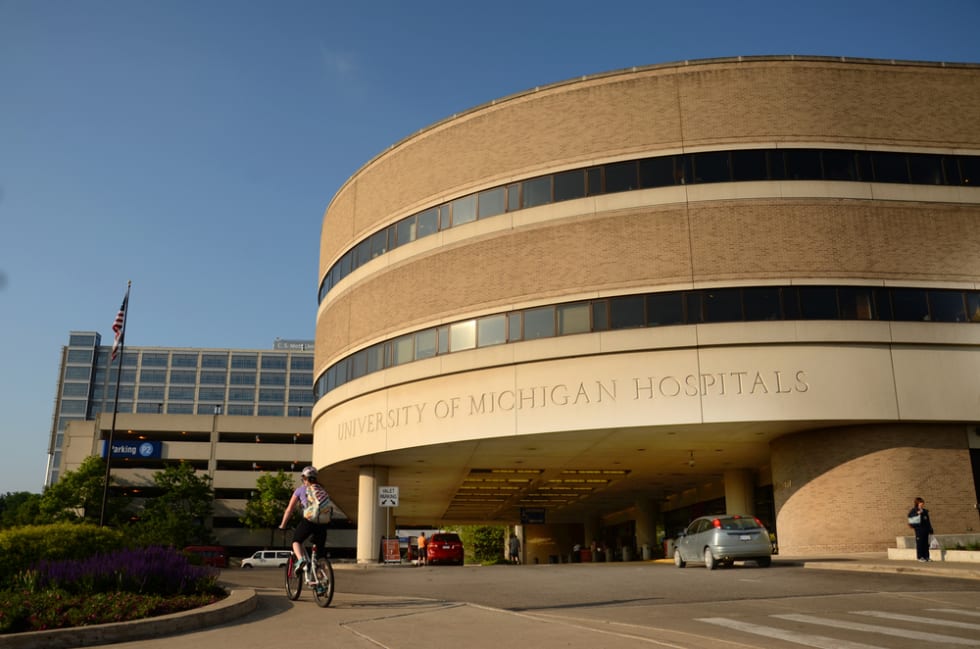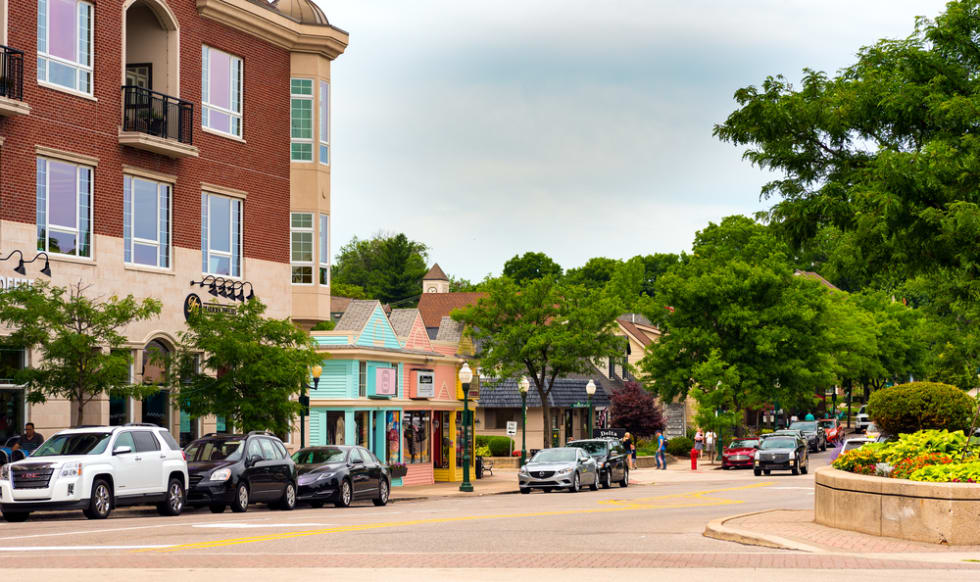- 194 units available
- 1 bed • 2 bed • 3 bed
- Amenities
In unit laundry, Granite counters, Pet friendly, 24hr maintenance, Garage, Stainless steel + more

Ann Arbor is an incredible city and one of the best places to live in the country. Residents enjoy the best of both worlds in Ann Arbor, with the feel of a bustling city paired with small-town local pride.
Countless characteristics make Ann Arbor both charming and exciting. Here, you’ll find the city to be a book-lovers paradise, a vibrant hub for the arts, and a perfect home for any outdoor enthusiast.
Whether you’re moving to Ann Arbor to take advantage of the great outdoors, the small-town experience, or a combination of both, you’ll want to get a good idea of what your costs will look like. So let’s look at the cost of living in Ann Arbor to understand better how much you need to live there.
Ann Arbor is the 5th most populated city in Michigan and home to the sprawling University of Michigan, but its population showed a slight decline of 0.9% in 2023. The average cost of living in Ann Arbor is about 5.5% higher than the national average and 15.3% higher than the state average.
Old Fourth Ward is among the most expensive neighborhoods to live in Ann Arbor, MI with single family homes renting into the $8,000 range. One bedroom apartments can be found for as low as $1,750 for a one-bedroom apartment in Ann Arbor or $2,950 for a two-bedroom.
Ann Arbor is among the more expensive than most cities in Michigan; however, there are reasonably priced neighborhoods to choose from in the northern areas of the city. One of the least expensive places to live in Ann Arbor is Northside Ann Arbor. A one-bedroom is around $1,600 and a two-bedroom is less than $2,000.
According to the latest data in July 2024, the average rent for a one-bedroom apartment in Charleston sits at $2,088 a month. If you're thinking about making a move to cities near Ann Arbor, we pulled together average rents to help you plan your budget.
| Bedrooms | Average Rent |
|---|---|
| Studio | $1,724 |
| 1 Bedroom | $2,088 |
| 2 Bedrooms | $2,534 |
| 3+ Bedrooms | $2,709 |
If you’re planning a move to Ann Arbor to enjoy more of the Great Lake State, you’ll spend an average of $2,088 a month for a one-bedroom apartment. This figure shows a decline in rent, which is a trend going on in most of the country.
If you need more room and are renting a two-bedroom apartment in Ann Arbor, you’ll spend an average of $2,534. We looked at data from July 2024 to come up with our rental averages.
Your recommended salary in Ann Arbor depends entirely on the type of lifestyle you plan to lead. The living wage in Ann Arbor is $22.76 per hour, which is the basic wage needed to pay for essentials like housing, food, and necessities. Extra costs like student loan repayments, dining and entertainment are not a part of the living wage when calculating your budget, so be sure to account for those as well.
You can compare the average cost of living to other areas of the United States by looking at data from the U.S. Census Bureau. They report the median household income in Ann Arbor is $78,546 a year or about $34.33 an hour. The median household income is a little lower in the rest of the U.S. at $75,149, or a little over $36 per hour.
You can also consider the 30% rule for rent to determine your ideal salary in Ann Arbor. When you follow this rule, you shouldn’t spend more than one-third, or 30%, of your gross income on rent.
For example, if your rent is close to the average for a one-bedroom apartment in Ann Arbor at $2,088, your monthly wages should be at least $6,960 a month, or an annual salary of $83,520. This recommended salary is for a fundamental lifestyle while in Ann Arbor.
The living wage, average salary, and recommended salary are three different tools for budgeting. While they can be helpful, it’s important to remember other additional living costs, such as dining, entertainment, travel, and shoring up an emergency fund. You may need to adjust your apartment search for less expensive rent, a higher salary, or possibly both once you add in these costs.
The good news is the typical annual salaries for common professions in Ann Arbor are highly competitive. For example, the three highest typical annual salaries belong to Management, Architecture and Engineering, and Computer and Mathematical, respectively. All of these salaries are projected to be well above Ann Arbor's living wage and the median household income in the area.

Winters in Ann Arbor are windy, snowy, and freezing. The coldest days of the year fall in January, with an average overnight temperature falling below 19°F. Summers are warm, with July being the hottest month with an average daytime high of 83°F.
Ann Arbor's utilities are reasonable compared to other cities in Michigan and the United States. You'll spend around $156 on a basic utility bill that includes electricity, heating, cooling, water, and garbage for a 915 sq ft apartment.
You'll probably need to factor in some breathing room into your utility bill, especially during those cold, winter months. You'll also need to factor in more for Internet (60 Mbps or More, Unlimited Data, Cable/ADSL), which will raise your utility bill by $63.12, totaling $219.12 a month.
You can get a better idea of what to expect and budget accordingly by getting an idea of how much utilities will cost in an apartment before you move.

If you have children that need daycare or are planning a family in the future, you'll spend a large portion of your income on childcare. Looking at MIT’s latest data, you'll spend around $15,709 for the annual cost of one child at daycare in Ann Arbor. For two children, you’ll spend $29,454.
You should plan to spend more if you live in an upscale neighborhood or anywhere that's experiencing long daycare wait lists or a childcare shortage. You may need to think outside of the box with employee-sponsored daycare at a discount, nanny shares, or a flexible, remote work schedule.
Ann Arbor’s official public transportation operator is the Ann Arbor Area Transportation Authority, also known as TheRide. TheRide serves the greater Ann Arbor-Ypsilanti area. Public transportation in Ann Arbor is easy to use, comfortable, and reliable. Still, you might be interested in having a vehicle of your own.
If you're a single adult without children, you'll spend about $9,847 for transportation in Ann Arbor annually. Two working adults and one child should expect to pay $14,355 for transportation annually.
Ann Arbor offers countless dining options and is known for its global cuisine to add to your must-eat list. Eating out at an inexpensive restaurant in Ann Arbor costs an average of $15 for a meal, while a three-course dinner for two people at a mid-range restaurant runs $80 without alcohol or dessert.
Single adults without children should expect to pay at least $4,563 on food per year. However, if you have a family of two working adults and one child, you should expect to pay $10,412 per year for food.

Ann Arbor’s winter months make it hard to get out and exercise, meaning you might want to consider fitness club membership costs to keep fit throughout the year. The monthly fee for a fitness club membership for one adult is $40.
Otherwise, when weather permits, you can enjoy the beautiful landscape of Ann Arbor outdoors. Hike some of the city’s most popular trails, including the Barton Nature Area, Bird Hills Nature Center, and Argo Nature Center. Ann Arbor’s other great outdoor activities include a round at the Stonebridge Golf Club, kayaking at Argo Canoe Livery, and checking out the animals at the Creature Conservancy.
If you enjoy a good workout followed by a movie, you'll spend $12.50 on tickets, not including snacks and drinks. Fortunately, there are also plenty of free things to do in Ann Arbor, including a visit to the Matthaei Botanical Gardens and the Kelsey Museum of Archaeology.

Now that you have all the information you need to make a decision about moving to Ann Arbor, MI, you can find your apartment with this quiz! Or save money by finding an affordable round-up of cheap apartments in Ann Arbor. Our goal is to help you save time, money, and stress with a one-stop solution for all of your apartment hunting needs.
If you follow the 30% rule, you should earn at least $83,520 a year or around $40 an hour to rent a one-bedroom apartment that costs $2,088. The idea is to spend only 30% of your income on rent to live comfortably. You can also consider MIT data’s living wage of $24.35 an hour, which is the bare minimum you need to live in Ann Arbor. That figure does not account for student loan repayments, travel, entertainment, savings, or travel.
Ann Arbor is more expensive than most ciites in Micghian. You'll find more affordable neighborhoods in Ann Arbor in the northern edges of the city. Northside Ann Arbor is among the cheapest places to live in Ann Arbor. A one-bedroom apartment costs $1,600 and a two-bedroom costs less than $2,000 to rent.
Despite Ann Arbor's windy, cold, and snowy winters, utilities are reasonably priced compared to the rest of the country. You can expect to pay around $156 on a basic utility bill that includes electricity, heating, cooling, water, and garbage for a 915 sq ft apartment. You should also add more to your budget to pay for Internet (60 Mbps or More, Unlimited Data, Cable/ADSL), which increases your utility bill by $63.12, for a total of $219.12 a month.

In unit laundry, Granite counters, Pet friendly, 24hr maintenance, Garage, Stainless steel + more
In unit laundry, Patio / balcony, Granite counters, Hardwood floors, Dishwasher, Pet friendly + more